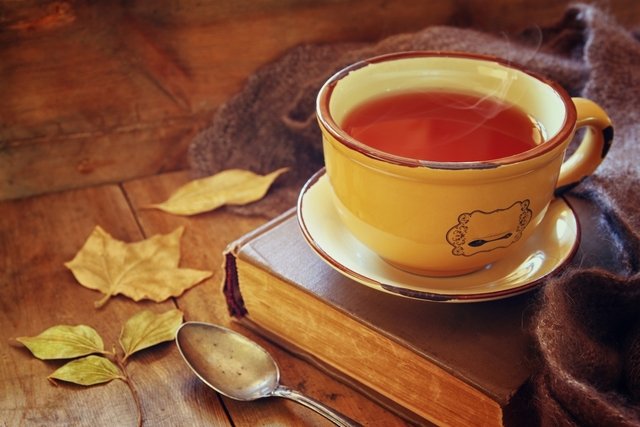An excellent natural sedative is passiflora incarnata, which is also known as purple passionflower or wild apricot. This plant is relatively easy to find, and contains strong calming properties that help to soothe anxiety and increase sleepiness. It can make you feel more calm, serene and relaxed.
You can make tea using any of these plants, however there are also supplements in the form of capsules you can purchase at natural health stores, supermarkets and some pharmacies. Generally, supplements should be taken as directed by a health care professional who specializes in medicinal plants or a registered dietitian, so that a dose can be indicated for you. Supplements work well to relieve longterm symptoms, and can reduce anxiety attacks, for example.

List of soothing herbs
There are many other plants that have similar effects, that reduce anxiety and nervousness. These include:
- Valerian: It contains a calming action that stimulates drowsiness, and therefore is most recommended for cases of agitation, insomnia, phobias and anxiety.
- St John's wort: This plant is good for restoring the nervous system and is often used as an antidepressant, and can be used in the treatment of depression, anxiety and nervousness.
- Chamomile: This has a calming action on the digestive and nervous systems, and creates a sensation of harmony which helps to soothe during moments of agitation and nervousness.
- Linden: It contains soothing properties, which help to complement treatment for nervous system disorders like excess stress, anxiety and hysteria.
- Lemon balm: This plant is soothing and can be used for sleep disorders, nervousness and anxiety.
- Lavender: It is rich in cumarin and essential oils that contains soothing and relaxing properties that act on nerve-related tension.
As mentioned, these plants can also be consumed in capsule or supplement form, with dosing as indicated by your doctor or medicinal plant specialist.
How to make a calming tea
To make tea, pick one of the above plants. Add 1 tea bag or 20 grams of the plant to 1 cup of boiling water for about 5 to 10 minutes. You can drink the tea 2 to 3 times throughout the day or during stressful situations.
If you need to take a sedative for sleep, valerian is the most recommended plant to use, as it increases melatonin levels which are important for sleep. In this case, the tea can be taken 15 to 30 minutes before sleeping. It is important to avoiding watching TV or using any electronics like your cellphone during this time.
The main benefit of using these natural sedatives in comparison for pharmacy or prescription medication is that they do not cause side effects or dependency.
However, even though these plants are accessible without a prescription, they should be used under the supervision of a doctor or health care professional specializing in medicinal plants. The dosing used should especially be monitored, as some plants can be toxic if consumed in excess.
Natural options for use during pregnancy
If used while pregnant, natural sedatives should be monitored by the obstetrician who is providing prenatal care. They should only be used if absolutely necessary, as they can cause side effects or health consequences for the baby. A good natural option that can be used by pregnant women is freshly squeezed passion fruit juice.
Natural options for babies and children
A natural sedative for babies is chamomile tea with sweet grass. It can help to soothe the baby and induce drowsiness, as well as help to fight colic-related gas that occurs in the first months of life.
Gripe water is a natural option that contains some of these medicinal plants, and can be used to treat colic and irritation in babies over 1 month. Although it can be purchased without a prescription, it should only be used under supervision of a doctor.
Another natural sedative for babies that can be used over 6 months of age (when a more diverse diet has already been introduced) is freshly squeezed passion fruit juice. To prepare this juice, you can mix 1 cup of water and the pulp of 1 passion fruit in a blender. Strain the mixture through a mesh sieve and offer a half cup to the baby or child.
